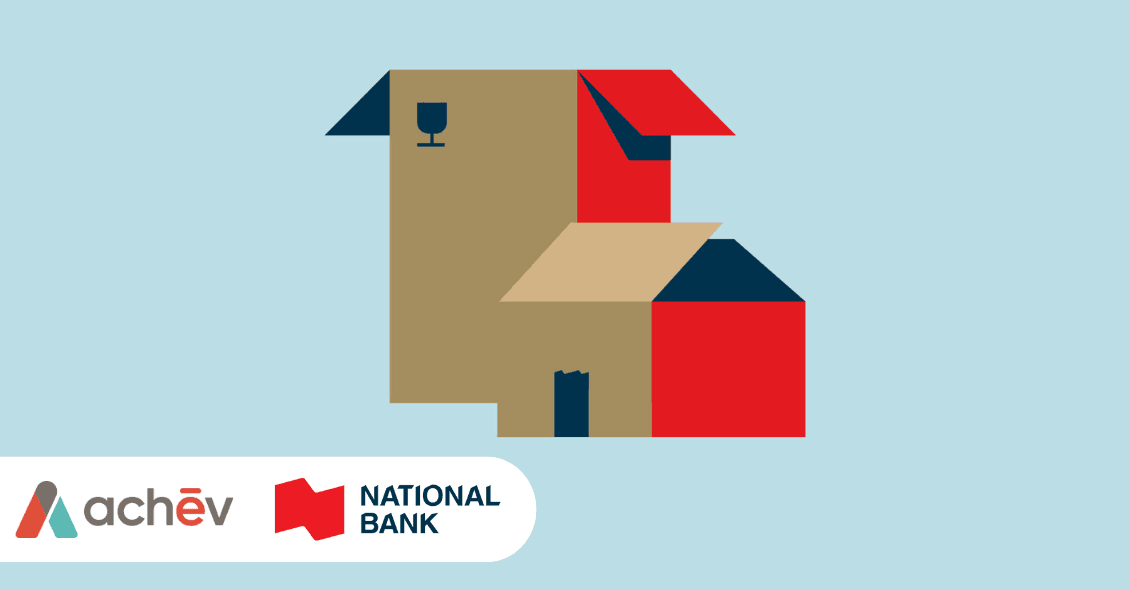Moving to a new country can be both exciting and challenging, especially for seniors. As a senior newcomer to Canada, you might have questions about what to expect, how to access resources, and what benefits are available to you. This guide offers practical tips to help you navigate your new life in Canada with ease and confidence.
Get to Know Your Community
One of the first things to do when you arrive in Canada is to familiarize yourself with your new community. Explore your neighborhood, find nearby parks, libraries, and community centers, and learn about local events. Organizations like Achēv hosts a wide variety of free events, workshops and support for seniors. Community centers often offer programs and activities specifically for seniors, such as fitness classes, social gatherings, and hobby groups. Participating in these activities can help you stay active, meet new people, and feel more connected to your community.
Tip: Many communities in Canada are multicultural, so you may find groups and events that celebrate your culture and language, making it easier to feel at home.
Access Health Care Services
Canada has a publicly funded healthcare system that provides essential medical services to all residents. As a senior newcomer, it’s important to apply for a provincial or territorial health card as soon as possible. This card allows you to access healthcare services, including doctor visits, hospital care, and certain prescription medications. Keep in mind that there may be a waiting period before you’re eligible for coverage, so consider getting private health insurance in the meantime.
Tip: Seniors are eligible for additional health benefits, such as free or discounted prescription medications, vision care, and dental services, depending on the province or territory you live in.
Learn About Senior Benefits and Programs
Canada offers a variety of benefits and programs for seniors, including financial assistance, housing support, and recreational activities. Some key benefits to explore include:
- Old Age Security (OAS): A monthly pension available to seniors aged 65 and older who meet certain residency requirements.
- Guaranteed Income Supplement (GIS): Additional income support for low-income seniors receiving the OAS pension.
- Canada Pension Plan (CPP): A retirement benefit based on your contributions to the plan during your working years.
Make sure to apply for these benefits as soon as you’re eligible, as they can help provide financial stability in your retirement years.
Tip: Service Canada provides resources and guidance on applying for senior benefits. You can visit a Service Canada office or access information online.
Stay Connected with Family and Friends
Maintaining strong social connections is important for your mental and emotional well-being. If you have family or friends in Canada, stay in touch with them regularly. If you’re new to the country and don’t know many people, consider joining social groups or clubs where you can meet others with similar interests. Many communities offer programs specifically for seniors, such as coffee mornings, book clubs, or walking groups, which can be a great way to build new friendships.
Tip: Technology can also help you stay connected with loved ones back home. Learning to use video calling apps like Skype, Zoom, or WhatsApp can bridge the distance and keep you in touch with family and friends.
Explore Language Learning Resources
If English or French is not your first language, learning or improving your language skills can make daily life in Canada easier. Many communities offer language classes and conversation groups for seniors, often at no cost. These classes can help you build confidence in speaking, reading, and writing, making it easier to navigate public services, healthcare, and social situations.
Tip: Some organizations offer language programs tailored to seniors, focusing on practical language skills for everyday situations, such as shopping, using public transportation, and visiting the doctor.
Understand Your Rights and Responsibilities
As a resident of Canada, it’s important to be aware of your rights and responsibilities. Seniors have the right to be treated with dignity and respect, and there are laws in place to protect against age discrimination. Additionally, you have access to resources that can help you with legal matters, such as wills, power of attorney, and elder abuse prevention.
Tip: If you need legal advice, many community organizations offer free or low-cost legal services for seniors. It’s also a good idea to familiarize yourself with the Canadian Charter of Rights and Freedoms.
Stay Active and Healthy
Staying physically and mentally active is key to enjoying a healthy and fulfilling life in Canada. Take advantage of the many recreational opportunities available, such as walking trails, fitness classes, and swimming pools. Engaging in regular physical activity can help you maintain your mobility, strength, and overall health. Additionally, staying mentally active through hobbies, learning new skills, or participating in social activities can keep your mind sharp and improve your quality of life.
Tip: Many community centers and senior organizations offer discounted or free memberships to fitness and wellness programs for seniors.
As a senior newcomer to Canada, there are many resources and programs available to help you settle into your new life. By getting to know your community, accessing healthcare services, applying for senior benefits, and staying socially and physically active, you can build a fulfilling life in Canada.









